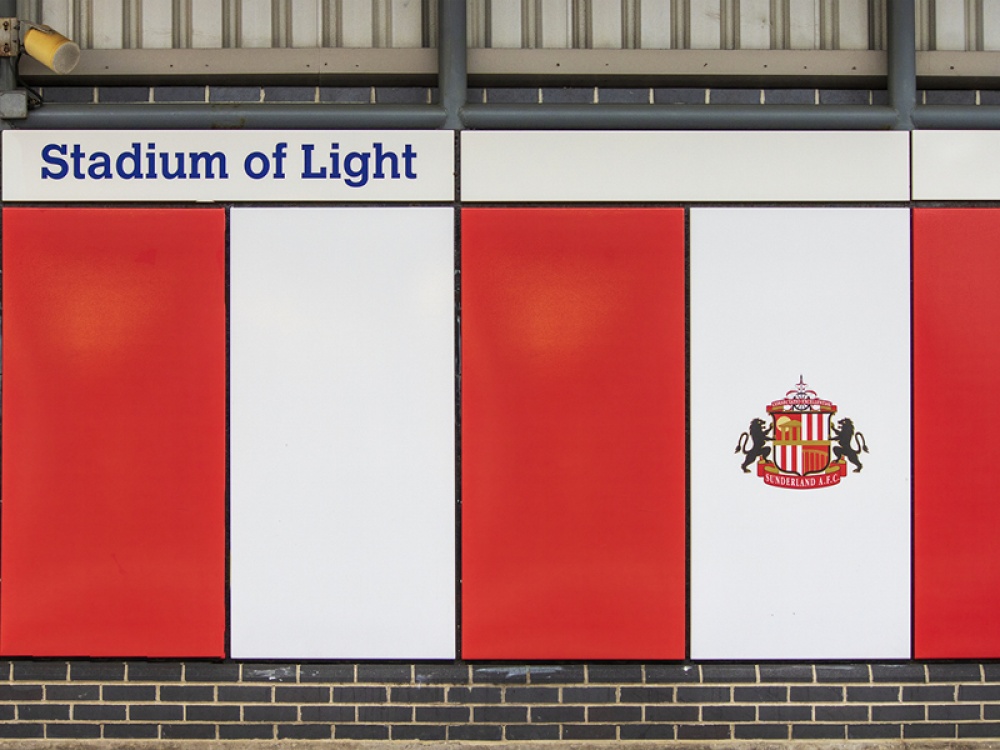This New Book Proves Wor Dialects Are 'Alreet'

Wor dialects are 'alreet', according to Dr Mike Pearce
Mike has lived in South Shields for nearly two decades, and was previously a senior lecturer in English Language and Dialectologist at the University of Sunderland. Whilst at the university he became interested in North East English and has published articles in academic journals on the subject. He’s also the author of the Routledge Dictionary of English Language Studies. It was when Mike discovered an online message board that he became inspired to write an up-to-date sociodialectological study of North East English.
‘As I was writing articles I discovered a wonderful resource for the study of local language: Ready to Go – the online message board for fans of Sunderland AFC,’ he tells us. ‘Of course, football plays an important role in North East life, and all the region’s big clubs (and some smaller ones) have online forums where fans can meet up virtually to chat. I saw that the Sunderland board posters used quite a lot of local vernacular forms – often quite unselfconsciously and naturally – and I realised that this huge archive consisting of millions of messages would be a goldmine for a dialectologist like me.’

So an idea was formed for an up-to-date description of North East English, proving that well-known dialect features (which are sometimes seen as old fashioned) are alive and kicking – at least amongst football fans. Mike’s book, North East Vernacular English Online, is the most detailed description of the region’s English published since the 19th century. The book is packed with examples from Ready to Go and also focuses on attitudes towards regional dialects.
Mike’s research uncovered lots of interesting things. ’North East English has often been regarded as a conservative variety, and this was – to a certain extent – borne out in relation to the message board, where there was plenty of evidence to suggest that many people regularly use features which were once found more widely across Northern England, but which now are only found in the North East or parts of Scotland,’ he continues.
‘For example, “wor” (as the equivalent of the more standard form “our”) is now regarded as stereotypical of the North East (particularly Tyneside and Northumberland) but earlier dialect surveys, such as the groundbreaking Survey of English Dialects which was carried out in the 1950s and ‘60s, recorded “wor" across the Northern counties and even as far south as Bedfordshire and Buckinghamshire. The Sunderland message board also recorded instances of a feature which is rarely found in current British English – pronouns and determiners such as “thou”, “thee”, “thine” and “thy” (though these forms seem to be limited to County Durham and are not found across the region).’
Mike found it fascinating to see how words which were recorded in 19th-century dialect dictionaries and grammars (and which go back much further than that in the history of the English language) are being used by posters on the message board. ‘They are still clearly part of the living vernacular,’ he says. ‘For example, I discovered hundreds of examples of people using traditional dialect words. I also found more recent additions to the region’s vocabulary, drawn from a variety of sources.’ This included words drawn from Romani. ‘“Has he chored some more wine to quaff on his way from work?”, “what a prize doylem you are man”, and “your crack is ladgeful”.’
Like all dialects, North East English changes over time. ‘New forms and pronunciations arise while others are lost,’ Mike explains. ‘But this region is perhaps more likely to preserve older forms than other parts of England due to historical, geographical and demographic factors. The North East’s relative isolation and its limited immigration from other parts of the UK and beyond, its close-knit and somewhat insular communities are significant factors in this respect.
‘Some of the older forms we see in the North East don’t just relate to grammar and vocabulary. Posters on the message board sometimes spell words to indicate pronunciation. For example, spellings such as “mooth”, “doon”, “aboot”, and so on, reflect a vowel sound which at one time everyone who spoke English would have used in these words. The same can be said for “lang”, “strang” and “amang”, which go back 1,500 years to Old English.’
Language is in a constant state of flux, so Mike explains that inevitably North East English has changed over the centuries – and will continue to change. ‘But language is a very strong marker of identity, so as long as people need to signal their allegiances to the region, an identifiable North East dialect will survive in some form,’ he claims. ‘And I think it’s culturally important – especially in a peripheral and marginalised region like the North East – for everyday vernacular culture to be acknowledged and celebrated, which I believe is what this book does.’
Pronouns and Determiners
• Does thoo not sleep Hank?
• I shall have a pint with thee.
• And wharrabout thy hair?
• Have a read and educate thyself.
Traditional Dialect
• Bairn trains with Cramlington United.
• I have a small spelk in my finger.
• Gans canny with crab sticks on a sarnie.
• It needs to be cooked for longer, not hoyed in the bin.
• Had them for me bait in graft a few times.
North East Vernacular English Online is available to buy at edinburghuniversitypress.com.










